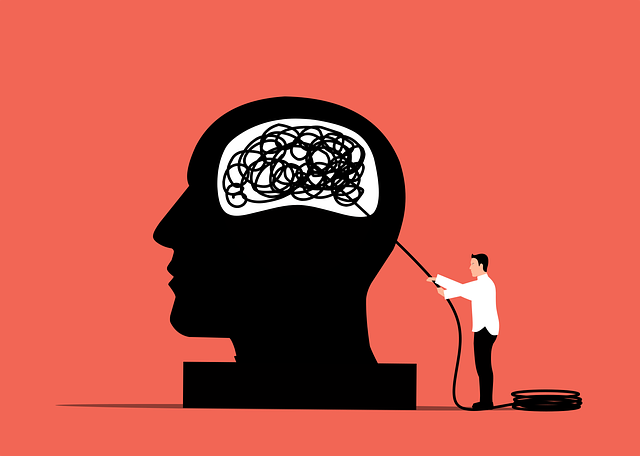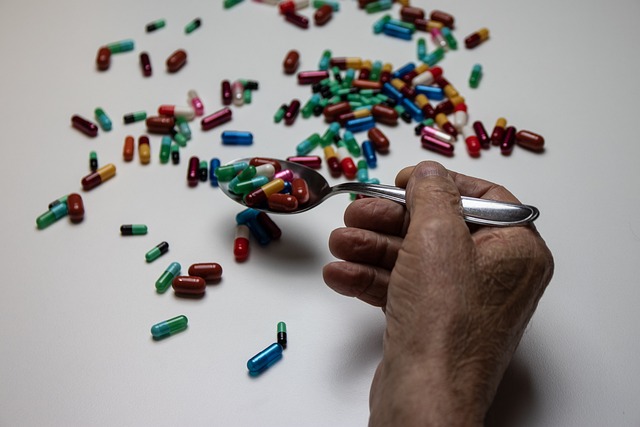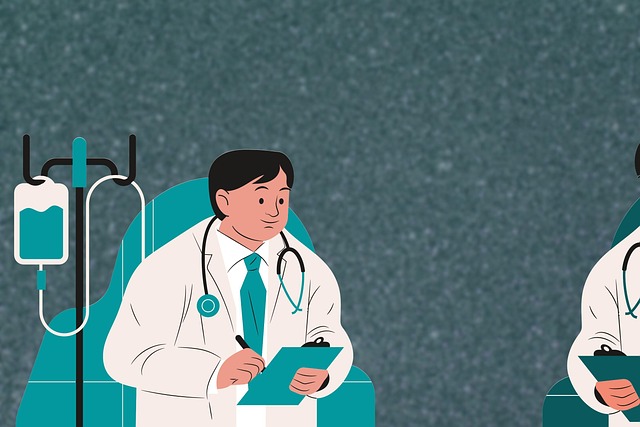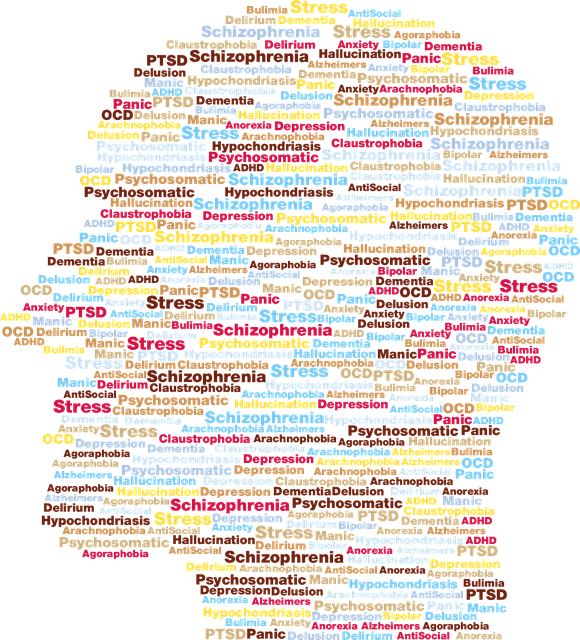Postpartum Depression (PPD) is a serious condition affecting new mothers, characterized by persistent sadness, anxiety, and exhaustion. Early recognition is crucial for timely intervention through tailored depression treatment programs including psychotherapy (CBT, IPT), medication (antidepressants), and lifestyle changes. These programs aim to improve symptoms like mood swings, appetite changes, sleep disturbances, and guilt feelings. Support groups and community resources also play vital roles in PPD recovery. Comprehensive, holistic approaches combining talk therapy with alternative practices have shown significant reductions in PPD symptoms. New mothers experiencing persistent emotional distress post-birth should consider enrolling in these specialized programs or seeking immediate crisis support.
Postpartum depression (PPD) is a common yet often misunderstood condition affecting new mothers. This comprehensive guide delves into the various aspects of PPD treatment, offering hope and practical strategies for recovery. From understanding symptoms and diagnosis to exploring psychotherapy options, medication management, lifestyle changes, support groups, and integrative therapies, this article covers a range of evidence-based approaches for effective depression treatment programs tailored to expectant and new mothers.
Understanding Postpartum Depression: Symptoms and Diagnosis

Postpartum depression (PPD) is a common yet serious condition that can affect new mothers, typically within the first year after giving birth. It’s more than just feeling ‘the baby blues’; PPD involves persistent feelings of sadness, anxiety, and exhaustion that significantly impact daily life. Symptoms can include extreme mood swings, prolonged crying, changes in appetite and sleep patterns, difficulty concentrating, and feelings of guilt or inadequacy related to motherhood.
Diagnosis often involves a comprehensive evaluation by healthcare professionals, including a detailed medical history, physical exam, and psychological assessment. Mental health professionals use specific criteria, such as those outlined in the Diagnostic and Statistical Manual (DSM-5), to determine if someone meets the diagnosis for major depressive disorder with peripartum onset. Recognizing the signs early is crucial, as timely intervention through various depression treatment programs can significantly improve outcomes for mothers and their families.
Types of Treatment Programs Available for postpartum depression

Postpartum depression (PPD) is a common yet serious condition that requires tailored support. Fortunately, there are several effective depression treatment programs designed to help new mothers navigate this challenging phase. These programs offer a range of therapeutic approaches, catering to individual needs and preferences.
One popular approach involves psychotherapy, or talk therapy, where trained professionals provide a safe space for mothers to express their feelings and emotions. Cognitive Behavioral Therapy (CBT) is a well-regarded method, focusing on identifying and changing negative thought patterns. Additionally, support groups offer valuable peer-to-peer connections, allowing women to share experiences and gain insights from one another. Medication, such as antidepressants, can also be prescribed by healthcare providers for severe cases, paired with psychotherapy for comprehensive depression treatment programs.
Psychotherapy Options for Managing Postpartum Mood Disorders

Psychotherapy, or talk therapy, plays a pivotal role in the comprehensive approach to treating postpartum mood disorders. One widely recognized and effective method is cognitive behavioral therapy (CBT). CBT helps new mothers identify and challenge negative thought patterns associated with motherhood and depression, empowering them to develop healthier coping mechanisms. This therapeutic process involves learning to recognize unhelpful thoughts, replacing them with realistic alternatives, and gradually implementing positive behaviors.
Additionally, interpersonal therapy (IPT) is another powerful tool in the postpartum depression treatment programs arsenal. IPT focuses on improving relationships and social connections, which can be significantly impacted by mood disorders. By facilitating open communication, resolving conflicts, and enhancing support systems, IPT aids mothers in navigating the emotional challenges of new motherhood while fostering healthier interactions with partners, family, and friends.
The Role of Medication in Treating Postpartum Depression

Medication plays a significant role in treating postpartum depression, offering a crucial component within comprehensive depression treatment programs. Antidepressant medications, such as selective serotonin reuptake inhibitors (SSRIs) and serotonin-norepinephrine reuptake inhibitors (SNRIs), are commonly prescribed to alleviate symptoms of this condition. These drugs work by increasing the levels of certain neurotransmitters in the brain, which can help regulate mood and improve emotional well-being.
The choice of medication is tailored to each individual’s needs, considering factors like severity of symptoms, personal medical history, and potential side effects. It’s important for individuals undergoing treatment to closely follow their healthcare provider’s guidance, as medications require consistent monitoring and adjustment to ensure optimal effectiveness and minimal adverse reactions.
Lifestyle Changes and Self-Care Strategies for Recovery

For many individuals dealing with postpartum depression, lifestyle changes and self-care strategies play a pivotal role in their recovery journey. Incorporating simple yet effective habits can significantly contribute to alleviating symptoms and enhancing overall well-being. Regular physical activity, for instance, releases endorphins that act as natural mood lifters, promoting better mental health. Even short walks or gentle exercises tailored to new mothers’ capabilities can make a difference.
Additionally, prioritizing quality sleep is essential. Establishing a relaxing bedtime routine and creating a conducive sleep environment can aid in restoring energy levels. Nurturing social connections and seeking support from friends and family also fosters recovery. Joining support groups or engaging in activities that build a sense of community can provide much-needed emotional backing. These lifestyle adjustments, alongside evidence-based depression treatment programs, offer a holistic approach to overcoming postpartum depression effectively.
Support Groups and Community Resources for New Mothers

Support groups and community resources play a vital role in the journey toward recovery for new mothers dealing with postpartum depression. These platforms offer a safe space to connect with others facing similar challenges, fostering a sense of belonging and understanding. Sharing experiences, strategies, and emotions with fellow mothers can be incredibly empowering. Many communities have dedicated support groups facilitated by healthcare professionals or trained volunteers who provide guidance and facilitate open discussions.
Community resources extend beyond these groups, encompassing local initiatives and services designed to aid mental health recovery. This may include mother-and-baby yoga classes, peer counseling services, or community meetings where experts share insights on postpartum well-being. These resources not only offer practical help but also create a supportive network that can enhance the effectiveness of depression treatment programs tailored for new mothers.
Integrative Therapies: Exploring Holistic Approaches

Postpartum depression (PPD) is a complex condition that requires tailored and comprehensive treatment. Integrative therapies offer a holistic approach, addressing not just the symptoms but also the underlying causes. These methods combine traditional talk therapy with alternative practices like mindfulness meditation, yoga, acupuncture, and nutrition counseling. Such an inclusive strategy aims to nurture both mental and physical well-being, often providing much-needed relief for new mothers struggling with PPD.
By integrating these diverse therapeutic techniques, depression treatment programs can offer personalized care that respects individual preferences and needs. This approach encourages a deeper sense of healing and empowers women to embrace a more balanced and fulfilling life post-pregnancy. Research suggests that holistic interventions can significantly reduce symptoms of PPD, making them valuable components in an effective treatment regimen.
When to Seek Professional Help and Crisis Intervention

Many new mothers may experience fleeting feelings of sadness or anxiety, but when these emotions persist and significantly impact daily life, it’s crucial to seek professional help. Postpartum depression (PPD) is a common yet serious condition that requires proper attention and care. If you’ve been experiencing persistent sadness, hopelessness, irritability, or fatigue for more than two weeks after giving birth, consider enrolling in a depression treatment program designed specifically for new mothers. These programs offer specialized support and evidence-based strategies to manage symptoms effectively.
In cases where symptoms are severe and immediate intervention is needed, crisis intervention services should be utilized without delay. This can include reaching out to a mental health hotline, consulting with a healthcare provider, or visiting an emergency room. Crisis interventions provide short-term support and can help stabilize individuals during intense episodes of distress. Remember, asking for help is a sign of strength, and timely intervention can make a significant difference in managing PPD and promoting long-term recovery.
Long-Term Management and Prevention Strategies

Many effective long-term management and prevention strategies exist for postpartum depression (PPD). Depression treatment programs often involve a combination of psychotherapy, medication, and lifestyle changes tailored to individual needs. Cognitive behavioral therapy (CBT), for instance, helps new mothers identify and change negative thought patterns associated with their condition. Interpersonal therapy (IPT) focuses on improving relationships and social support networks, which can alleviate symptoms of PPD.
Additionally, preventative measures can be taken during and after pregnancy. This includes establishing a robust support system, maintaining a healthy lifestyle through balanced nutrition and regular exercise, and seeking professional help early if symptoms of depression emerge. Ongoing mental health care post-pregnancy, including check-ins with healthcare providers and participation in supportive groups, can also play a crucial role in managing PPD and promoting long-term well-being for new mothers.
